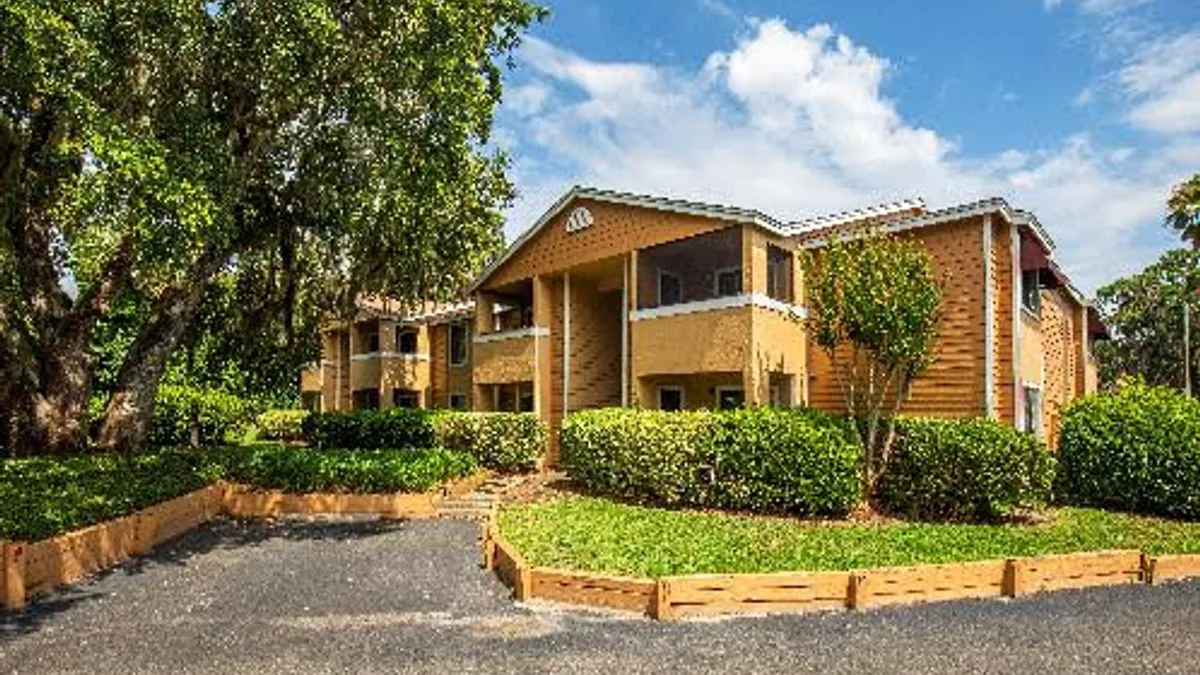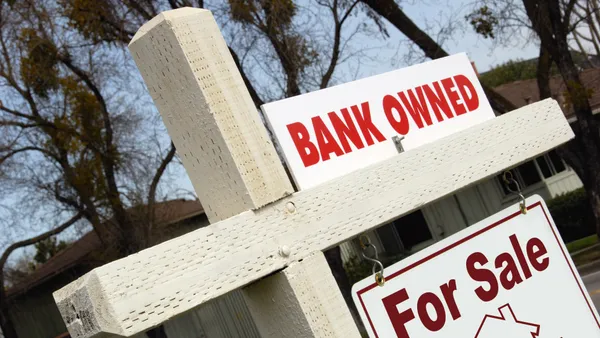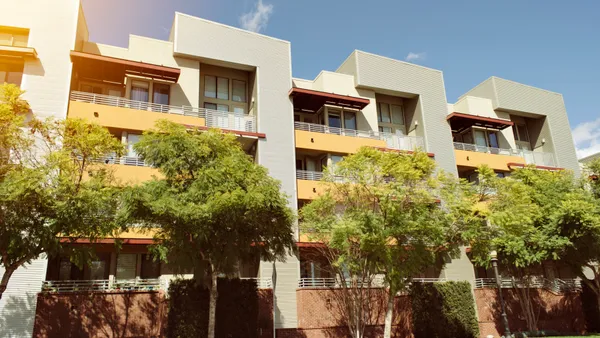Like many apartment owners, Derek Graham loves the Sun Belt states.
Graham, president and principal of Hermosa Beach, California-based Odyssey Properties Group, has been active in Arizona, Texas and Florida, including acquiring two Florida multifamily communities in July comprising a total of 304 units for $53 million.
“We bought several deals in the last 12 months in Dallas,” Graham told Multifamily Dive. “We also like Tampa, Orlando and Jacksonville.”
But Odyssey also targets a region not mentioned very much these days by opportunistic apartment investors: The Pacific Northwest. In addition to the Sun Belt, the company seeks target properties — 1985 to 1990 garden-style assets with 100 to 400 units — in Washington state. But there are challenges in the region.
“We have five properties in the Pacific Northwest, but it's been a little more difficult dealing with tenants' delinquencies because of eviction moratoriums than in other parts of the country,” Graham said. “Once they did end the eviction moratoriums, they seem to be taking longer to process than in other states, like Arizona, Texas and Florida.”
Here, Graham talks with Multifamily Dive about buying in the northwest part of the country, pricing expectations and where interest rates are moving.
This interview has been edited for brevity and clarity.
MULTIFAMILY DIVE: How is the rental market recovery from COVID-19 going in the Pacific Northwest? I know it trailed some areas of the country.
DEREK GRAHAM: I think the ship will be righted by spring of 2023 for the Northwest. To my knowledge, none of the employers are leaving, and people aren't exiting the Pacific Northwest, specifically Seattle, for other states. California is losing a decent number of company residents to other states like Texas, but I don't think you're seeing that happen from the Northwest.
Is the underwriting different there?
We track 20 markets at all times. So we think we see every deal within our parameters that comes to the market. In the Seattle region, it has been difficult for us to make it work from an underwriting standpoint. And it's largely because the pricing hasn't shifted very much — the same as in all these other markets. Sellers are resistant to adjusting their pricing and I don't blame them.

Added to that are the complexities associated with underwriting deals because of the higher-than-historical delinquencies. So you've got a seller that wants yesterday’s pricing but is not quite willing to acknowledge the impact on the financials related to tenant delinquencies. We can't quite yet make numbers pencil out.
Capital market volatility has also created a gap between buyers and sellers on pricing. What will need to happen to get sellers to lower prices?
In any market cycle like this one, you're going to have 20% of the sellers that are willing to meet the market on pricing. And I think the rest of them are going to be resistant to discounting their sales expectations too much. They're resistant to it because they see within their own portfolios that the fundamentals remain at historic highs.
We're seeing rent growth without spending a lot of money on renovations. Unless they're compelled to sell, I don't think you're going to see a lot of sellers rush to discount their pricing.
Could rising rates compel them to sell?
I think it all depends on what your crystal ball says about where interest rates will be. If they keep rising, then I think the pressure will build on a lot of owners to effectuate some sales earlier than they anticipated.
What does your crystal ball say?
If I had to pull out my crystal ball, I think interest rates will begin to level off next spring. Most people are projecting that rates will begin to flatten next June and from there on out for a long time. If that's the case, and you’re a seller, why would you sell?
There is another group of people who think the Fed will probably overdo these rate increases and then next spring and summer will begin to reverse direction by lowering rates again because they will have thrown the economy into a recession. And then they've got to undo a little bit of damage.
If that's the case and you're a seller, you don't need to sell. If your rents are growing, you really don't want to sell it because you think you’ll be back to pretty strong pricing.
Click here to sign up to receive multifamily and apartment news like this article in your inbox every weekday.











